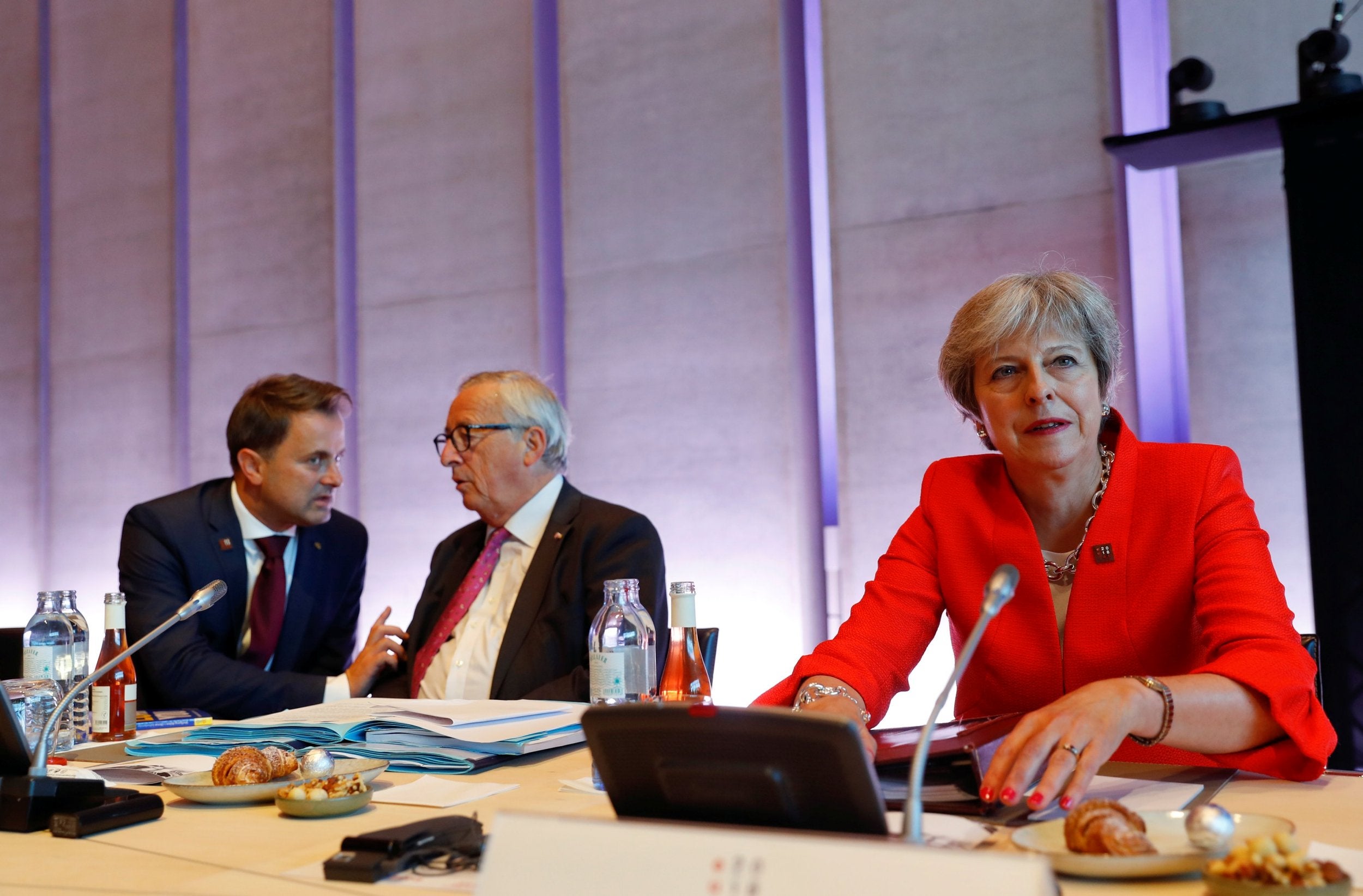As she prepares to meet EU leaders next week, Theresa May should aim for compromise
The idea that the UK should leave the EU without any kind of agreement, however blurred the outline of that agreement, would be to create massive economic disruption

Your support helps us to tell the story
From reproductive rights to climate change to Big Tech, The Independent is on the ground when the story is developing. Whether it's investigating the financials of Elon Musk's pro-Trump PAC or producing our latest documentary, 'The A Word', which shines a light on the American women fighting for reproductive rights, we know how important it is to parse out the facts from the messaging.
At such a critical moment in US history, we need reporters on the ground. Your donation allows us to keep sending journalists to speak to both sides of the story.
The Independent is trusted by Americans across the entire political spectrum. And unlike many other quality news outlets, we choose not to lock Americans out of our reporting and analysis with paywalls. We believe quality journalism should be available to everyone, paid for by those who can afford it.
Your support makes all the difference.On Wednesday the prime minister will dine with her fellow European heads of government at the European summit meeting. It is possible that there will, by the time the meetings are over, be agreement as to the terms under which the UK will leave the EU.
Indeed, it is even conceivable that the outline of the deal will be announced earlier, for Brexit secretary Dominic Raab has gone to Brussels for crunch talks – though, given the diplomatic disaster at the Salzburg summit last month, no one should have overly high expectations. But if there is an accord, even a fudged one that pushes contentious issues such as the Irish border into the future, Theresa May still will have to get it through parliament.
The Independent has argued consistently that the final deal should be put to the UK electorate. The people must have the Final Say. But there has to be an agreement to put to them. The idea that the UK should leave the EU without any kind of agreement, however blurred the outline of it might be, would be to create massive economic disruption. All but the most ardent Leavers would reject that. So the practical question now, if there is indeed a deal brokered on Wednesday, is whether the prime minister can get it through the House of Commons.
She faces opposition from several quarters. First, she has to carry the cabinet. David Davis, the former Brexit secretary, has called on ministers to “exert their collective authority” to force a change of policy. It is easy to dismiss his views as those of a disgruntled troublemaker, who initially supported the Chequers plan only to change his mind later and resign in a huff. But he carries support from other ministers as well as from MPs on both sides of the house. It is possible that Ms May will face a vote of no confidence this week.
She is also opposed by Arlene Foster, former first minister of Northern Ireland and leader of the Democratic Unionist Party, upon whose support the government relies to give it a working majority. She believes the most likely outcome is a no-deal Brexit, presumably because she would oppose any compromise brokered by Ms May.
The prime minister should call her bluff. If the government’s plan fails, the government may well fall. Does the DUP really want to risk a general election, with the possibility of a Labour government led by Jeremy Corbyn and John McDonnell, both of whom have supported calls for a united Ireland?
One of the casualties of the Brexit issue is calm and reasoned debate. Politics are about compromise. Common sense says the government should seek an agreement that is broadly acceptable to most of the 48 per cent who voted to remain as well as to most of the 52 per cent who wished to leave.
Common sense would also maintain that such a compromise would be the long-term self-interest of the EU. During the past few days there have been increasing signs that such an agreement, inevitably an imperfect one, is within reach.
To be clear: we believe that the final arbiters of whatever emerges must be put to the people. But there has to be an agreement to put to them. Only then can there be a reasoned debate about it.
Join our commenting forum
Join thought-provoking conversations, follow other Independent readers and see their replies
Comments